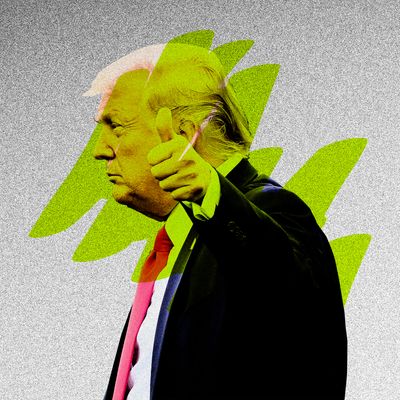
The Trump era has been defined in large part by its everyday surreality. As we approach January 20, we’re looking back on some strange but perhaps lesser-remembered moments from the last few weird years.
The Trump administration spent much of its first few months in office finding evermore inventive and unnecessary ways to insult Holocaust survivors.
First, in one of the opening acts of Donald Trump’s presidency, the White House released a statement commemorating International Holocaust Remembrance Day — which somehow didn’t mention Jews. An apology was hardly forthcoming.
Two months later, White House press secretary Sean Spicer set out to defend the merits of the president’s air strike against the Syrian government and ended up defending Adolf Hitler’s stance on the use of weaponized gas.
“We didn’t use chemical weapons in World War II,” Spicer began, suggesting that Bashar al-Assad’s use of a weapon too inhumane for the United States to use in a war against fascists earned his government a martial punishment. Then, for some strange reason, Spicer decided that his argument would be strengthened by giving props to Hitler.
“You had someone as despicable as Hitler, who didn’t even sink to using chemical weapons,” Spicer observed. “He was not using the gas on his own people, the same way that Assad was doing. There was not — he brought them into the Holocaust centers, I understand that. But I’m saying, in the way that Assad used them, where he went into towns, dropped them down, to innocents — in the middle of town.”
Say what you want about Hitler, but at least he never gassed his own people — not unless you consider German Jews to have been real Germans! Or, anyway, at least the Führer had the decency not to gas them “in the middle of town,” merely at the more secluded “Holocaust centers.”
Weeks after Spicer’s performance, Trump made a trip to Yad Vashem, Israel’s memorial to the victims of the Holocaust. Given his administration’s track record displaying sensitivity on the subject of genocide, it wasn’t terribly surprising that Trump refused to allot more than 15 minutes for his visit. Nor would it have shocked many to learn that his inscription in the Yad Vashem’s “Book of Remembrance” would be less than moving. But the mogul still managed to raise a few eyebrows by signing the document as though it were the guest book at his best friend’s bar mitzvah:
These incidents, while baffling (and, in the first case, possibly even nefarious), nonetheless had a darkly comic element to them — suitable for a Curb Your Enthusiasm B-plot.
In his presidency’s subsequent chapters, Trump was “bad for the Jews” in more serious ways. For instance, he would eventually promulgate a conspiracy theory about rich Jews orchestrating a migrant invasion of the United States — shortly after similar notions inspired a white nationalist to commit mass murder at a Pittsburgh synagogue — and then compensate for endangering the Jewish diaspora by further abetting Israel’s subjugation of the Palestinians. Trump also engaged in a little anti-Semitic stereotyping in a room full of wealthy Jewish donors and proclaimed that some American Jews — presumably the ones who protested his policies — “don’t love Israel enough.”
For a few months there, though, it looked like Trump’s affronts to liberal Jewry would be more mashugana than malevolent.































